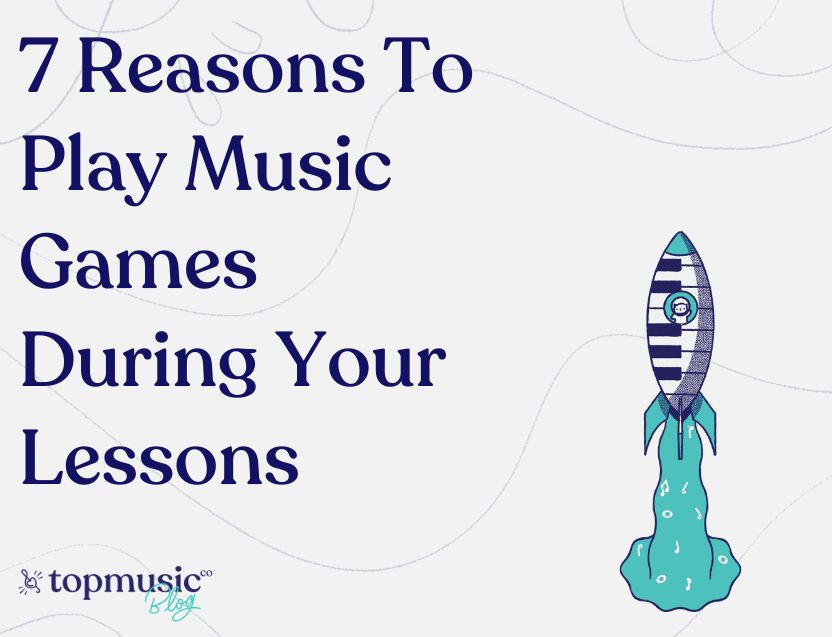When it comes to music lessons, you want to cram in as much learning as possible. Thinking about fitting in a music game is just out of the question. But after reading these seven reasons, you’ll be re-planning your lessons to fit in one or two…
Do you have a student (or students) who cause your stress levels to rise?
Maybe they’re the ones who are easily distracted and procrastinate instead of doing what you’ve asked. You feel that every lesson goes by and nothing gets done.
Or maybe they’re the kind who say, “I don’t get it,” a million times. And you’re 99% sure they *do* understand. They’re just being difficult.
Or maybe they’re the sort of student who refuses to do anything more than once. If you dare ask them to repeat something, you get that unimpressed stare until you suggest a different activity.
By the end of your last lesson of the day you’re frazzled. Exhausted. Losing the will.
We hear you. And we have something to help you: music games.
Table Of Contents
Music games don’t have to take long at all. We’re talking in under five minutes. Literally! You can even set a timer to keep you on track (you might even be able to fit in two games in that time!)
Sometimes you can take five minutes to encourage a particularly wiggly student to sit and focus – those five minutes could be spent instead on playing a music game that focuses the student and gets them practicing their musical knowledge.
Related: The Art of Keeping Music Theory Fun and Engaging
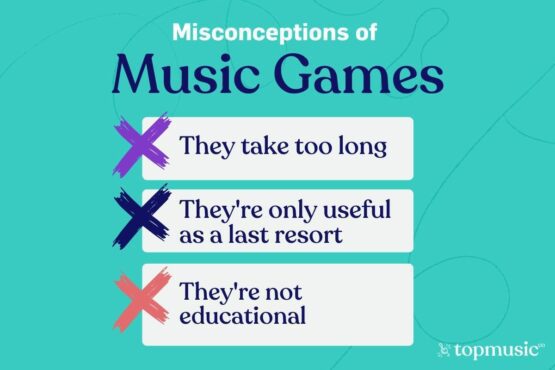
If you’re working on tougher songs, practicing for a recital or performance, or a student is having *one of those days*, your students will love playing a five-minute game!
Rather than asking them to “play it again” and feeling their enthusiasm levels dip, play a quick game and then play the piece again.
And it’s music related, so they’re still learning!
Encourage your students to work hard and focus so that they can play a music game at the end of the lesson.
This is a great incentive for students who are renowned for losing concentration. You can give them a gentle reminder that if they don’t finish the task, they won’t be able to play a game can be just enough to spur them on!
Related: CPTP155: 10 Ways to Fit Music Teaching Games into Your Lessons with Nicola Cantan
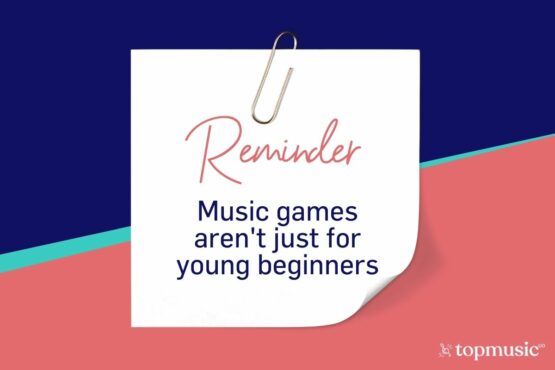
Music games = happy students.
Happy students = more practice.
Happy students who practice more = happy teachers.
The end.
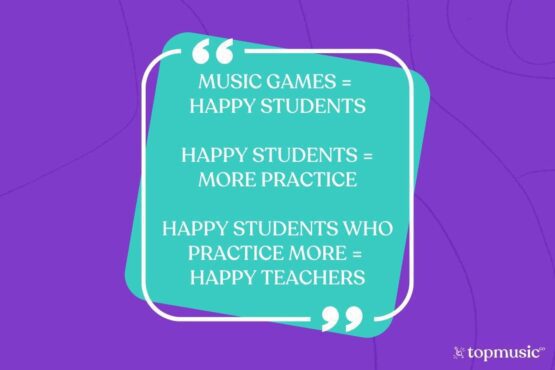
The assumption is that games are just for young beginners and when students reach a certain age or level, they stop being interested.
Of course, this is sometimes the case (teenagers can be “too cool” for games) but you would be surprised at how many older students love playing music games! When it comes to revising trickier concepts like scales, intervals, and key signatures, testing your older students’ knowledge in a fun game form rather than simply pointing at things and asking them questions can be a more enjoyable experience for both student and teacher.
If your student is finding a particular concept hard, it can be refreshing to get away from the piano and try it in a game.
There’s less pressure for the student – you’re playing a game rather than a piece! But when they return to the piece and see the concept in action they can make the connection, and everything can click into place.
And if you have a student who likes to claim, “I don’t know,” a game is a great way to prove that they do know.
Related: How to Use Music Theory Games to Get Real Results
Games can highlight problems you might not have known about before. By separating concepts from the piece or method book, you can discover things your students don’t fully understand.
For example, you might find out your student is confused by the difference between a sharp and a flat, but this hasn’t come up outside of a game!
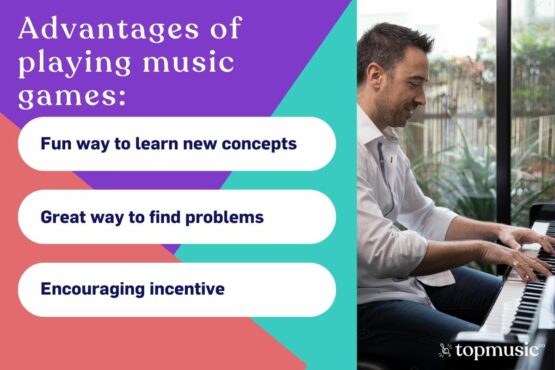
Are you interested in incorporating music games into your lessons but have no clue where to start?
Let us help you!
First, step? You’ll need some games! Starting August 2023, every month TopMusicPro members will receive four brand-new studio-licensed music games to use with their students. You can join TopMusicPro from just $10 a month; that’s $10 for new games and everything else TopMusicPro Lite has to offer.
